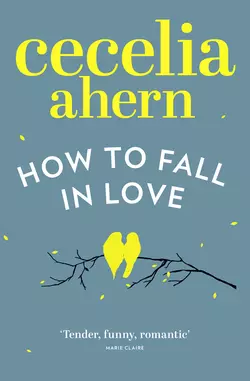How to Fall in Love

Cecelia Ahern
Тип: электронная книга
Жанр: Современные любовные романы
Язык: на английском языке
Стоимость: 699.98 ₽
Статус: В продаже
Издательство: HarperCollins
Дата публикации: 16.04.2024
Отзывы: Пока нет Добавить отзыв
О книге: ‘A tender, funny and romantic drama’ Marie ClaireAdam Basil and Christine Rose are thrown together late one night: Christine is crossing the Ha′penny Bridge in Dublin; Adam is poised, threatening to jump.Adam is desperate – but Christine makes a crazy deal with him. His birthday is looming and she bets him that before then she can show him life is worth living .Against the ticking of the clock, the two of them embark on wild escapades, grand romantic gestures and some unlikely late-night outings. Slowly, Christine thinks Adam is starting to fall back in love with his life. But is that all that′s happening?A novel to make you laugh, cry and appreciate life, this is Cecelia Ahern at her thoughtful and surprising best.